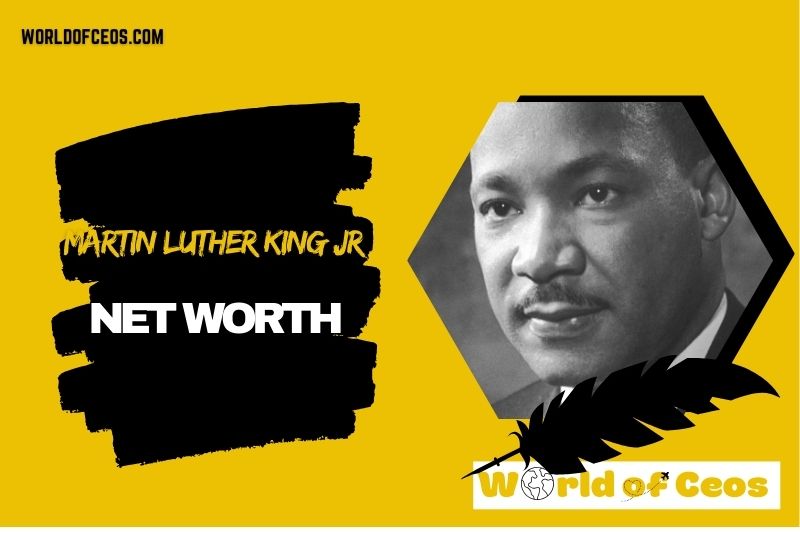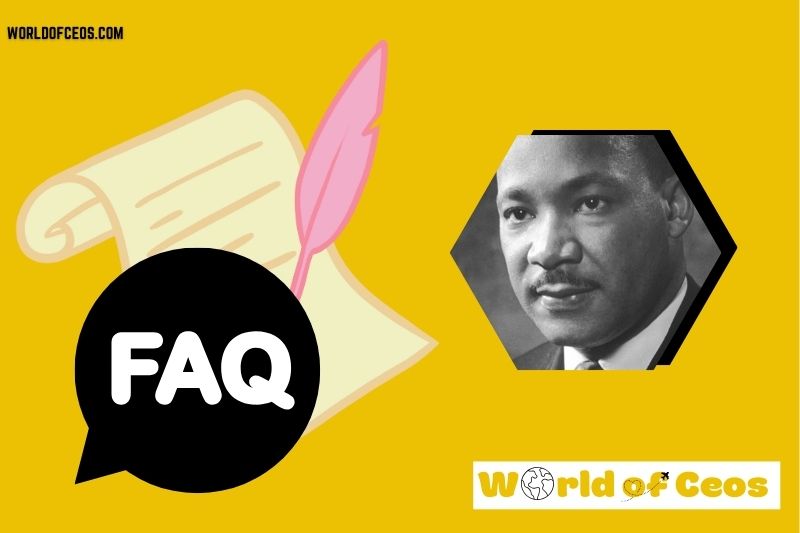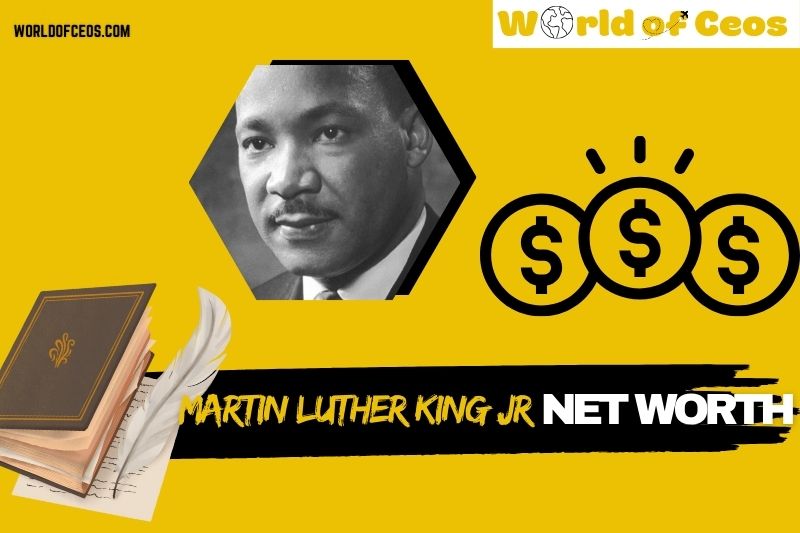Martin Luther King Jr is one of history’s most iconic leaders, celebrated for his pivotal role in the Civil Rights Movement.
His contributions not only brought justice and equality to millions but also shaped his modest financial legacy.
While King wasn’t driven by material wealth, his influence and activities provided income streams that supported his activism.
Let’s dive into Martin Luther King Jr net worth and the lasting financial impact of his work.
Quick Facts
| Fact | Detail |
|---|---|
| Real Name | Michael Luther King Jr. |
| Popular Name | Martin Luther King Jr. |
| Gender | Male |
| Birth Date | January 15, 1929 |
| Age | 39 (Assassinated: April 4, 1968) |
| Parents | Michael King Sr., Alberta Williams King |
| Siblings | Christine King Farris, Alfred Daniel King |
| Birthplace | Atlanta, Georgia |
| Nationality | American |
| Ethnicity | African-American, Irish |
| Education | Morehouse College, Boston University, Crozer Theological Seminary |
| Marital Status | Married |
| Spouse | Coretta Scott King |
| Children | Martin Luther King III, Yolanda King, Bernice King, Dexter King |
| Dating | N/A |
| Net Worth | $250,000 (adjusted for inflation) |
| Source of Wealth | Book royalties, speaking fees, leadership roles |
| Height | 5 ft 7 in (1.69 m) |
What is the Net Worth of Martin Luther King Jr in 2024?

In 2024, Martin Luther King Jr’s estimated net worth remains around $250,000 when adjusted for inflation. This figure reflects his modest earnings from his civil rights work, book royalties, and speaking engagements.
Despite his limited personal wealth, King’s impact was priceless, influencing millions and shaping policies that transformed lives.
Comparable figures
Here are other notable historical figures and their financial legacies:
- Coretta Scott King
- Malcolm X
- Rosa Parks
- Frederick Douglass
- Nelson Mandela
- Martin Luther
- Booker T. Washington
- Harriet Tubman
- W.E.B. Du Bois
- Cesar Chavez
For more insights into famous authors’ wealth, check out this comprehensive list of affluent authors.
Martin Luther King Jr Wealth, Salary, and Finance Overview

Income Through His Leadership in the Civil Rights Movement
Martin Luther King Jr’s primary role as a leader in the Civil Rights Movement generated financial support through public donations and contributions.
These funds were directed toward organizing pivotal events like the Montgomery Bus Boycott and the March on Washington.
His involvement elevated his public profile and encouraged philanthropy, sustaining his advocacy work and that of organizations like the Southern Christian Leadership Conference (SCLC).
The Impact of Martin Luther King Jr’s Speeches and Writings on His Income
King’s speeches and writings became sources of income.
Works like Stride Toward Freedom and the famous Letter from Birmingham Jail not only inspired millions but also provided modest royalties.
His most iconic moment, the I Have a Dream”speech, amplified his influence, resulting in greater speaking fees and book deals.
Role in the Montgomery Bus Boycott and Its Financial Legacy
The Montgomery Bus Boycott not only catalyzed the Civil Rights Movement but also demonstrated King’s leadership skills. Financially, this boycott drew national attention and donations that supported the activists.
Although it imposed financial hardships on King and his peers, the event’s success laid a foundation for future campaigns.
Leadership of the Southern Christian Leadership Conference (SCLC)
As president of the SCLC, King helped mobilize financial resources from donors, churches, and organizations. This funding sustained civil rights campaigns, legal battles, and community outreach efforts.
The SCLC’s successes cemented King’s role as a powerful fundraiser and advocate for equality.
Nobel Peace Prize and Other Awards Contributed to His Finances
King’s 1964 Nobel Peace Prize included a monetary award, which he donated to civil rights causes.
Other honors, such as the Presidential Medal of Freedom and Congressional Gold Medal, further solidified his reputation, attracting funding for the movement and posthumously increasing his family’s financial stability.
The Role of his Legacy in Ongoing Financial Contributions
Today, King’s legacy continues through foundations like the King Center, which his wife Coretta Scott King established. These organizations receive substantial donations to promote his vision of justice and equality.
Additionally, the annual Martin Luther King Jr. Day generates economic activity through events and programs honoring his memory.
FAQs About Martin Luther King Jr

What was Martin Luther King Jr’s real name?
His real name was Michael Luther King Jr., which he later changed to reflect his admiration for the Protestant leader Martin Luther.
Where was he born?
He was born in Atlanta, Georgia, on January 15, 1929.
Did he have siblings?
Yes, he had two siblings: Christine King Farris and Alfred Daniel King.
Who was Martin Luther King Jr married to?
He was married to Coretta Scott King, a novelist and activist, from 1953 until his assassination in 1968.
What awards did he receive?
He received numerous accolades, including the Nobel Peace Prize, Presidential Medal of Freedom, and Congressional Gold Medal.
What inspired Martin Luther King Jr’s activism?
His activism was deeply influenced by his father’s ministry, the teachings of Mahatma Gandhi, and his own experiences with racial injustice.
How did he impact civil rights?
Through nonviolent protests and powerful speeches, he led efforts that resulted in landmark changes like the Civil Rights Act and the Voting Rights Act.
How is he honored today?
He is honored with an annual federal holiday, numerous memorials, and streets named after him worldwide.
Conclusion
Martin Luther King Jr’s financial legacy may be modest, but his impact is immeasurable.
His life reminds us of the power of determination and justice. Explore more about influential figures and their legacies on worldofceos.com. Share your thoughts and join the conversation!

